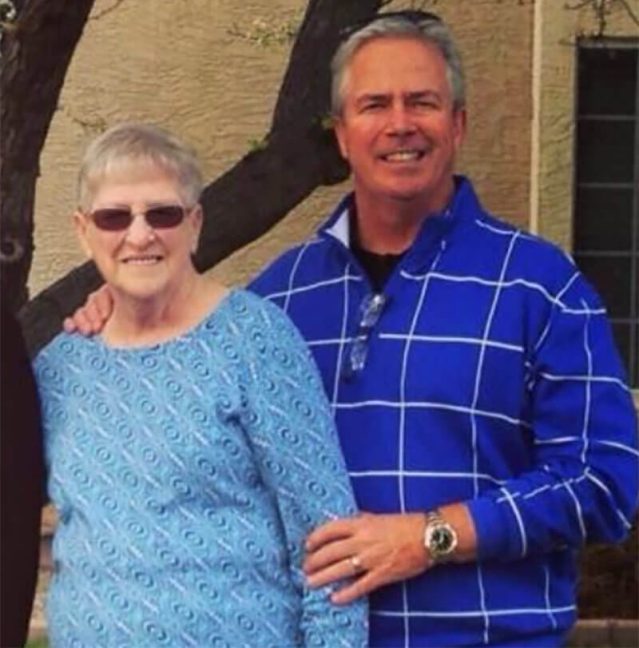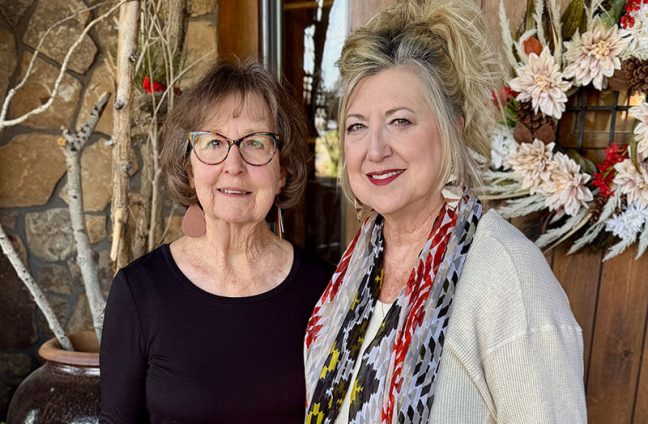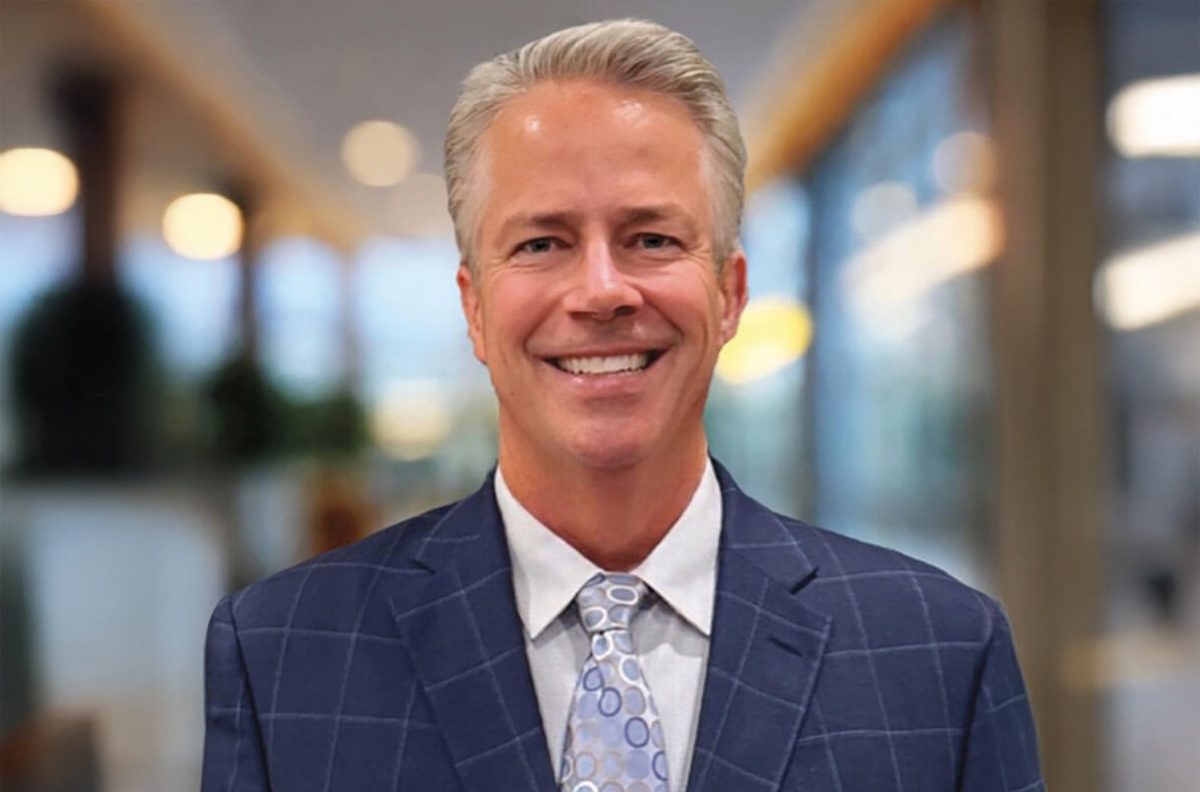In the days of old when most children worked alongside their parents, taking care of the house or farm chores or in other businesses, there were multiple moments in every single day that a good work ethic was learned, taught and lived.

I would guess that anyone over age 50 could tell story after story about how they learned their work ethic from their parents. I sure did. From as early as I can remember, my mom, Polly, was always working.
My parents divorced when I was a year old, so most of my upbringing was at the sole hands of my mother. Mom worked at the Clinton Oklahoma Regional Hospital as a dietitian when I was 4. In fact, we lived just across the street from the hospital.
She later worked in the meat department at Puckett’s Food Store in Clinton, Oklahoma, along with Steve Haggard, the head butcher. Anyone in grocery retail knows how hard that job is. She was the meat wrapper and could manually do the job at least twice as fast as any of the auto wrappers in stores today.
That is where, at age 12, I got my first job in the grocery business. I started out just racking empty pop bottles, bagging chickens and sacking groceries on the weekends. By age 15, I oversaw the store on Sundays – opening it, running payroll, issuing checks and making sure we closed properly and that customers were taken care of.
One of my favorite stories to tell is when we ordered our class rings as sophomores in high school. Mine cost $80. When it came time to pay for it, mom signed her weekly Puckett’s paycheck, and I cashed it to pay for that ring. It took her whole check.
I’ve thought many times about how hard she worked and how she gladly signed over that check. It was certainly a sacrifice for her as a single mother of three boys.
A few years later, my mom bought her own shop, the 183 Quick Stop in Arapaho, Oklahoma. As anyone who owns a business knows, she seemingly had to live in the store to make money. She did very well during that time, but I’ll never forget how many hours she put in every week. She was a great connector and was a large part of the community there.
Melanie (my then girlfriend and now wife of nearly 48 years) and I both worked at the Quick Stop during our junior and senior years of high school when we weren’t working at our other jobs or playing several sports.
My mom passed away in October 2014, and I tell the story of being by her bedside when she took her last breath in my book, “The 5 Rules – The Epilogue.” I will forever be grateful for her work ethic legacy, and it has been a major part of my work life.
Another major example of a solid work ethic in my life was Melanie’s dad, Ralph Roll, a third-generation farmer who worked typical farmer’s hours alongside his father, William “Bill” Roll – sunup to sundown and most of the time in between. He never complained about the hours or the toll it took on his body.
If wheat or alfalfa needed to be cut, cotton stripped or fields plowed because the weather was just right until 3 or 4 a.m., then it was done. If cattle decided the grass was greener on the other side of the fence at 8:30 a.m. when we were leaving for church, everyone got out in their Sunday best and rounded up the herd and drove them back to the home pasture.

Lettie, Melanie’s mother, was a city girl who was plunged into the challenging world of country life when she married Ralph. Lettie learned to grow, can and preserve food, sew most of the family’s clothes and haul wheat to town in a truck.
The whole family was involved in running the farm. Everyone chopped cotton in the hot summers together. We had to finish before we could go on vacation in the family RV that was a converted bread truck Ralph had customized.
We also harvested crops, milked cows, raised chickens for eggs and meat and thousands of hogs and cattle – not only for the family meat supply but to take to the market. They grew cotton, wheat, alfalfa, silage and raised a large vegetable garden. A farmer is on call 24/7. His family can’t help but be influenced by his work ethic. Ralph would say, “Put your mind to it and you can do it.”
We lost Ralph in January 2024, and Melanie’s mom has had to learn how to live without him in her daily life, where he took care of everything. She has stepped up in a way that after 66 years of marriage can’t be planned for; it just must unfold. I would also like to dedicate this column to my mother-in-law. She’s teaching us how to rise up and do what we have to do – not because we want to, but because that’s what resilient people do. Whatever it takes!
My mom instilled in me the work ethic I have today. I’ve always been one of the first ones to the office and stayed as long as necessary to get the job done. My iPhone is always close by to check for immediate business needs. Over my career, I’ve worked more weekends and given up more vacations than I’d like to admit, but that comes with the work ethic.
“The requirements of a job should be the floor – not the ceiling!”
I’ve learned over my 50-plus-year career in the business that we must work hard, but we also must work smart. It is a requirement to be a great leader.
“Hurry to work, get the job done, then hurry home.”
We can’t do that in today’s world if we’re not working smart.
One practice I’ve used for years that works well is to block off the first two hours of the day and the last two hours of the day. Don’t allow meetings or calls during this time. That’s your time to think, catch up and connect.
Otherwise, we create a culture where our teams must take their work home or stay late. Taking work home or staying late should be the exception, not the rule. If the team must stay late or take work home every day, something is wrong. It’s the job of a top leader to fix it.
Now, to bring this altogether for a lifetime leadership lesson. We all have grown up under different circumstances and different generations, but the core of who we are will always get back to work ethic. Can your team and family depend on you? Are you teaching the next generation to have a high work ethic?
Not everyone is lucky enough to have a mom or a dad to learn this from, so we all need to be willing to step in and play that role in someone’s life. The dividends will be very rewarding, and we’ll have a legacy that will live on for many generations to come as work ethic is learned, taught and lived by those we are around the most. Just like the old days!
Steve Black is CEO and founder of abrighterday.life, a business and leadership coaching organization devoted to helping people and companies with personal growth and implementing simple leadership principles. A 47-year-veteran of the retail grocery arena, Black is the author of “The 5 Rules” and offers an online Masterclass.
[RELATED: Leadership: Be A River – Not A Reservoir]

